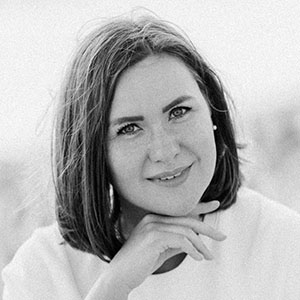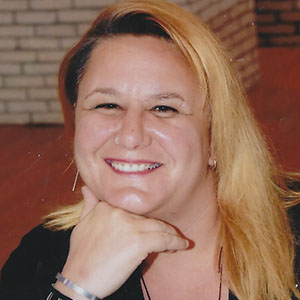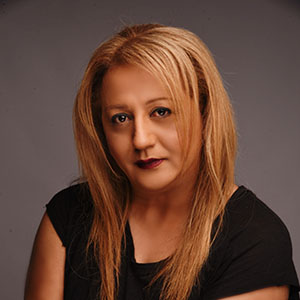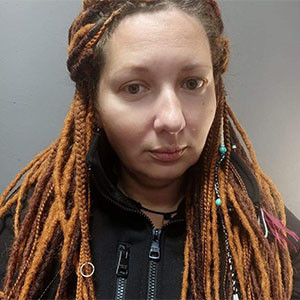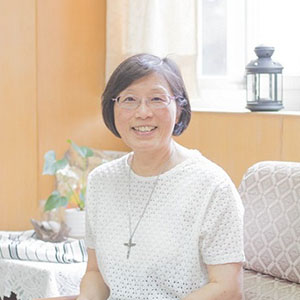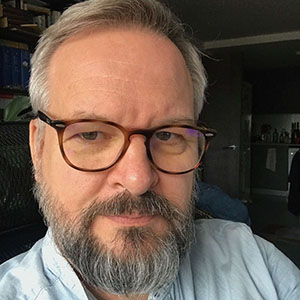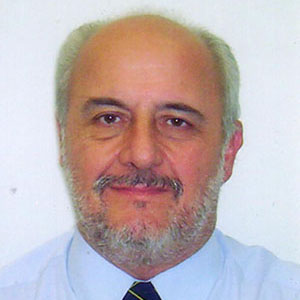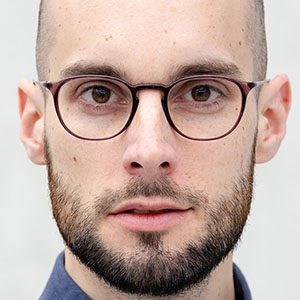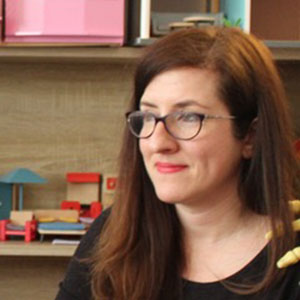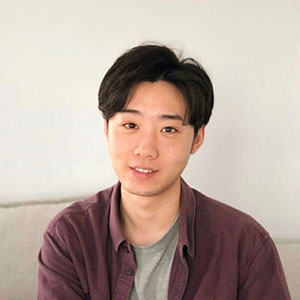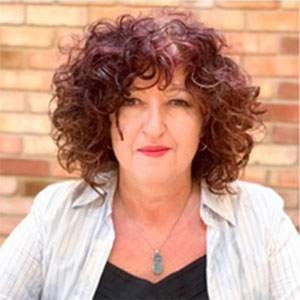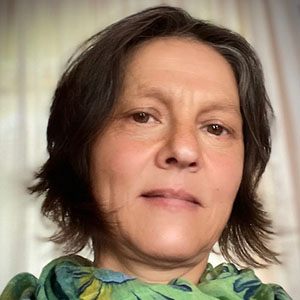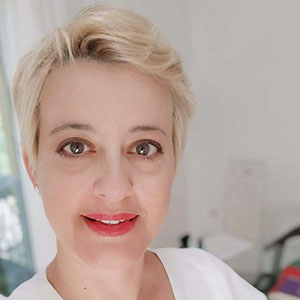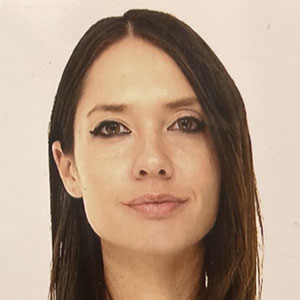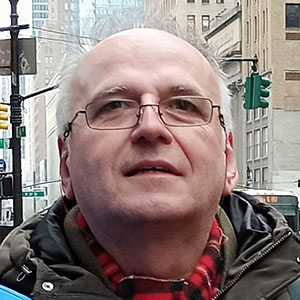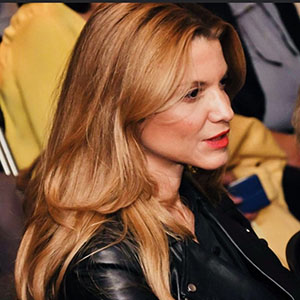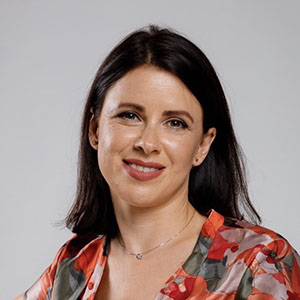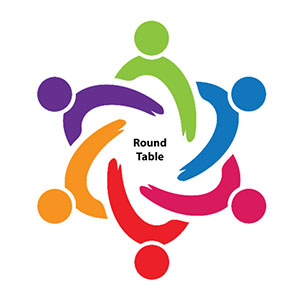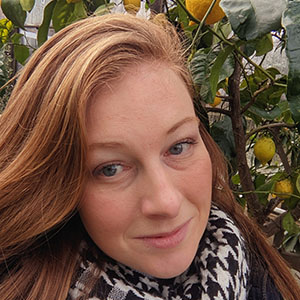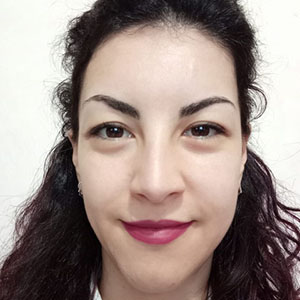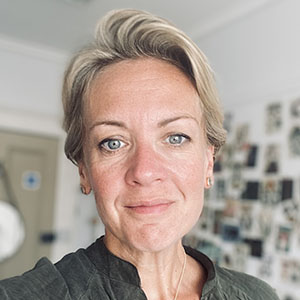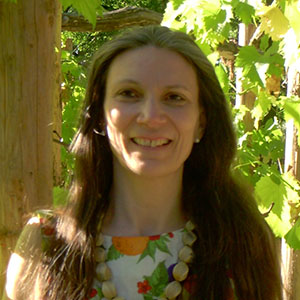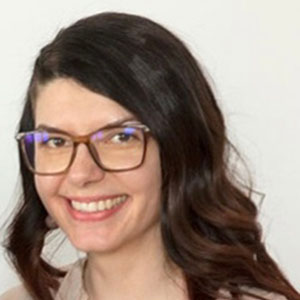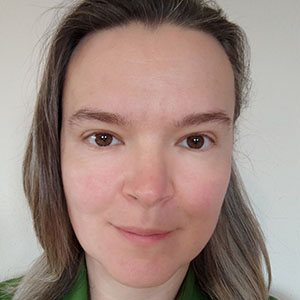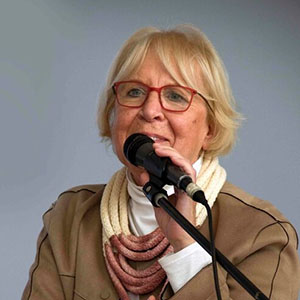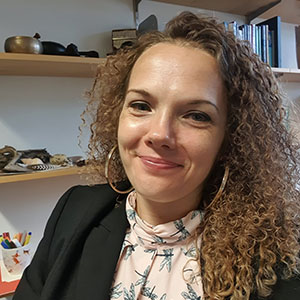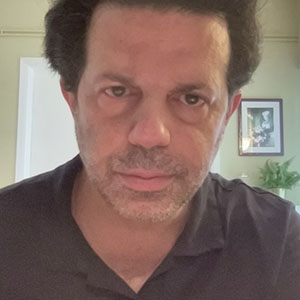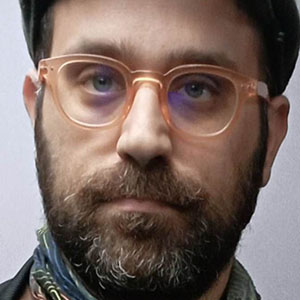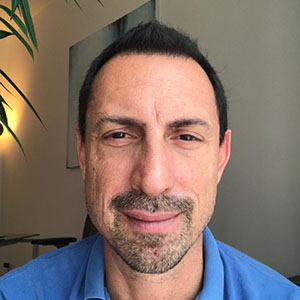Presentations |
Meet the presenters of the short presentations (displayed here in a random order)
You can find the list of all the presentations’ titles & abstracts just after the presenters photographs.
Soon more presenters/presentations may be added.
Note that all the presentations are short but some of them are joint presentations
and there is a round-table discussion with the title:
Gender, identity, and sexuality as multiplicities: heteroglossia and polyphony
(Coordinator: Pavlos Zarogiannis – Participants: Chloe Kollyri, Anna Apergi-Konstantinidi, George Kesisoglou, Parvy Palmou)
Especially we note here the joint presentation by PCE Europe & WAPCEPC, with the title:
PCE Europe and WAPCEPC – Working together to promote the polyphony of person-centred and experiential approaches in a changing world
(PCE Europe: Leonore Langner, Paul Diaconescu, Ewa Kaczorkiewicz – WAPCEPC: Yana Gololob, Kyriaki Kentigjeleni)
Presentations by title
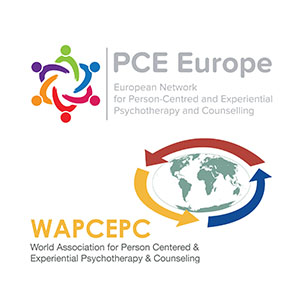
(Joint presentation PCE Europe & WAPCEPC)
| Title: PCE Europe and WAPCEPC – Working together to promote the polyphony of person-centred and experiential approaches in a changing world |
| Presenters: PCE Europe will be represented by Leonore Langner, Paul Diaconescu, Ewa Kaczorkiewicz and WAPCEPC by Yana Gololob, Kyriaki Kentigjeleni. |
This joint presentation will highlight the work of PCE Europe and WAPCEPC, two organisations which are committed to supporting and promoting the polyphony of person-centred and experiential approaches in a changing world. Over the last quarter of a century, both organisations have been involved in furthering the humanisation of interpersonal and social relationships in individual, societal and cultural life, especially in the areas of counselling and psychotherapy. We are excited to share with you what we have to offer, and what our visions are for the future. The presentation will be an opportunity to engage with board members of both associations, to find out more about what the organisations do, how they operate, the work they are currently undertaking, the benefits of being a member, and how you can become involved.
PCE Europe
PCE Europe, the European Network for Person-Centred and Experiential Psychotherapy and Counselling, was founded in 1998 on the occasion of the Annual Meeting of European Person/Client–Centred Organisations in Luxembourg. PCE Europe is the patron of this symposium and celebrates its 25th anniversary with this event.
PCE Europe will be represented by Leonore Langner, Paul Diaconescu, Ewa Kaczorkiewicz.
WAPCEPC
WAPCECP, the World Association for Person Centered & Experiential Psychotherapy & Counseling, was founded in 1997 on the occasion of the Fourth International Conference on Client-Centered and Experiential Psychotherapy (ICCCEP) in Lisbon, Portugal. In 2009, PCE Europe became a Chapter of WAPCEPC. Both organisations are not profit-oriented, politically neutral, nonreligious and non-denominational. They aim to further co-operation between person-centred and experiential associations, organisations, institutions and individuals both in Europe and around the world, and to engage in socio-political processes to ensure the continued contribution of the paradigm in health, social insurance, education, academic contexts.
WAPCEPC will be represented by Yana Gololob, Kyriaki Kentigjeleni.
(Round table discussion/presentations)
| Title: Gender, identity, and sexuality as multiplicities: heteroglossia and polyphony |
| Coordinator: Pavlos Zarogiannis Participants: Chloe Kollyri, Anna Apergi-Konstantinidi, George Kesisoglou, Parvy Palmou |
And yet: the one may be many, but the many were sacrificed, and continue to be sacrificed, in the name of the one. Because what has prevailed and what has been imposed for centuries is categorization, grouping, and homogenization, as well as the vertical hierarchy of homogenized categories and groups, something that led, and still leads, to prohibitions, marginalization, exclusions, and conditional inclusions with painful, traumatic, and sometimes tragic consequences for those who belong to the arbitrarily and pejoratively called “minority” groups.
Maybe now is the time to remember Aristotle’s saying about the multiplicity of beings and to reflect on their heteroglossia and polyphony. And, of course, it is also a time for us to contemplate the depth and implications of this saying at all levels of our psychotherapeutic practice. And this not only in relation to our patients, but also to us as therapists.
Short CVs
Pavlos Zarogiannis has studied Clinical Psychology, German literature, and Linguistics in Germany. He lives and works in Athens as a person-centred therapist, supervisor, and trainer in Person-Centered and Focusing-Oriented Counselling and Psychotherapy. He is Co-founder and Co-director of the Hellenic Focusing Center and also a certified coordinator for Greece in the International Focusing Institute (TIFI). He has interests in literature, art, and philosophy.
Chloe Kolyri, MD, Phd. Psychiatrist-psychoanalyst, Queering psychoanalyst. Politics of psychoanalysis. Moderator of the Greek Society for Deleuze and Guattari Studies, Co-founder of the Greek Anti-psychiatry group.
Anna Apergi-Konstantinidi, is the President of Greek Transgender Support Association (GTSA) and she has been member of civil society organizations for over of ten years.
She is a regular member of GTSA from 2012. From 2015 till 2016 she was regional secretary of GTSA and from 2017 till 2021 she was office director of GTSA. She is a certain member from GTSA to the Racist Violence Recording Network (RVRN) and also representative of GTSA to Recording Mechanism of National Committee for Human Rights (NCHR).
From March of 2022 till now she leads the presidency of GTSA and parallel she is certain member from LGBTQI+ organizations to NCHR and chair of the Section for the Advancement for Human Rights of NCHR.
From 1997 till 2000 she worked as a trainee catchpole at the Courts of First instance of Drama and Xanthi. She took part by the side of our dear departed president of GTSA, Marina Galanou, as representative at many boards of the Greek Parliament for instance for the voting of civil partnership, legal gender recognition and equal treatment. Also at November of 2022 she took part at the sittings of the Standing Committee of Public Administration, Civil Order and Justice for the processing and examination of the draft law for the Correctional Code of Ministry of the Citizens.
From 2016 she worked as an expert at issues of asylum for LGBTQI+ asylum seekers at the NGO Praksis and from 2018 she became a member of the Scientific Workgroup of Health Ministry with object the full accession of transgender and intersex persons at health.
From 2020 till 2021 she worked as trainer at the University Program of Aegean University with title: “Gestalt Affirmative LGBTQI+-Counceling for sexual diversity and gender identities”.George Kesisoglou (Ph.D) is in private practice in Athens, Greece, as a psychologist and systemic family therapist. He has conducted postdoctoral qualitative research on group supervision processes and has published on precarity, critical discursive psychology, family therapy and affective practices. He collaborates as an Family Therapy Instructor with the Systemic Institute of Cyprus and Entropia Institute in Thessaloniki. The past ten years, he has taught courses in Social Psychology, Qualitative Research and Counseling Psychology at public and private universities. He is a graduate and doctor of the Department of Psychology of the University of Athens, a member of the Systemic Society of Northern Greece (SEVE). He is interested in critical, multicultural and social constructionist approaches to therapy. In recent years, he coordinates the open hybrid seminar on History and Philosophy of Systemic Thinking “Government, Systems, Roots”, as well as editing the open-access Anti-Archive “Constellations of Concepts”.
Parvy Palmou they are an accredited E.A.G.T Gestalt Therapist , a clinical psychologist and activist, working privately in Athens Greece. In 2010 they joined the Greek Transgender Support association and worked with trans activist Marina Galanou on depathologization and legal gender recognition of trans identities until her recent passing. For the last 13 years they are Head of the Department of Health for Trans and Intersex Families at the Greek Transgender Support Association where they practice group and individual gestalt therapy with transgender, intersex and non-binary people and their families. In 2021 they were a lecturer at the University of the Aegean for the LGBTQI+ Gestalt Affirmative Counseling Program that they co-created together with Anna Apergi, president of GT.S.A. For the past 6 years they are a country expert for the ILGA Europe annual review. Currently they are a PhD candidate at the University of Bolton performing research on inclusive trans healthcare.
(Two joint presentations)
| Title: Wounded hearts. Relationships that empower. |
| Presenters: Yana Gololob, Valeriia Pryhozhyna |
It has been over a year since Russia’s full-scale invasion of Ukraine. While our country has been fighting for its integrity and independence since 2014, when Russia annexed our territories. Professionals in our field find themselves caught up in this complex and poignant situation of war and genocide. Entire towns and villages find themselves cut off from the surface of the earth. People are deprived of their habitual lives and their roots. Every day the entire territory of Ukraine is threatened by rocket attacks and bombardments, and people are surviving in this situation.
What we are facing:
- Some 7 million people have either lost their homes or had them partially destroyed.
- Up to 5 million people have been displaced because of the hostilities.
- More than 7 million people have immigrated and are in a difficult process of adaptation.
- Up to 200,000 combatants are serving in the army and are fighting.
A therapist can be useful for all these categories of people, reducing their daily stress and suffering. But what makes our situation unique is that therapists suffer just as much as the rest of our population.
We would like to share with you our experiences and ideas about the wounded healer. Trauma does not define us as individuals. Although it can be painful and have a negative impact on our lives, we can overcome it and find mutual support. The support of others and our own will together helps us to overcome difficulties and achieve a better version of ourselves. Together we can turn our traumas into a source of strength and inspiration.
Short CVs
Yana Gololob, Master’s degree in Psychology, is a PCA trainer of the Ukrainian Umbrella Association of Psychotherapists, lecturer of Ukrainian Psychotherapy University, and a person-centred psychotherapist in private practice. She is a co-author and co-director of the person-centered children and youth therapy training project. She is a current Board member of the World Association for Person-Centered and Experiential Psychotherapy and Counseling. Her main concern is with the development of the person-centered approach both in Ukraine and worldwide.
Valeriia Pryhozhyna. Born on January 28, 1978 in Dnipro, Ukraine.
1996-2000 Dnipro National University, Faculty of Psychology.
1998-2003 Ukrainian Umbrella Association of Psychotherapists, training in Client-Centered Therapy according of C. Rogers.
2000-2008 Leading psychologist of the psychological service of Dnipro National University.
2008-20018 Psychologist of the Regional Center for Education of Disabled People of the National Metallurgical Academy of Ukraine.
From 2003 to 2008 Head of the Dnipro branch of the Ukrainian Union of Psychotherapists.
From 2015 to the present, the head of the Person-Centered Therapy section of the UUAP.
In 2014, one of the founders of the Psychological Crisis Service of the Maidan in Dnipro.
Since 2018, has his own psychological practice.
Since 2022, the founder of the NGO “Crisis Psychological Assistance” in the city of Dnipro and Dnipro region.
| Title: Clients’ voice: Clients’ perception of Person-Centered Psychotherapy in the Romanian Field of Practice |
| Presenters: Ioana Agachi, Cosmin Lungu |
Person-Centered Psychotherapy is relatively recent in the history of the Romanian psychotherapeutic field, spanning about twenty years. Having established a foundation for training and practice in the approach, the time has come to investigate how Person-Centred Psychotherapy is perceived by clients. Thus, we have initiated a descriptive study aimed at capturing clients’ perceptions of the person-centered psychotherapy process carried out in Romanian private practice.
To conduct this descriptive study, we developed the following methodology: an online questionnaire consisting of 19 questions. The questions explore various aspects, such as the factors that facilitated change during the psychotherapeutic process, the duration of the process, and the perceived differences between the therapeutic relationship and other types of relationships. The respondents are adults currently engaged in ongoing psychotherapeutic processes.
Our intention is to use this methodology as a foundation for further research inquiries, the outcomes of which can be used to enhance and improve the practice of Person Centered Psychotherapy in Romania. The aim of this study is to listen to and consider the clients` viewpoints on their experiences within the psychotherapeutic process. We view clients as valuable partners in the development of the Person Centred Psychotherapy approach.
Authors: Ioana Agachi, Cristina Babalau, Cosmina Brascauceanu, Eva Maria Cucoanes, Arina Dogaru, Cosmin Lungu, Georgeta Niculescu
Short CVs
Ioana Agachi is a psychotherapist and supervisor in the Person-Centered Approach. Over the last fifteen years she developed a private practice in Bucharest, Romania. She is a member of Romanian Association for Person Centered Psychotherapy and PCE-Europe.
Cosmin Lungu is a clinical psychologist with a specialization in working with bariatric surgery candidates. He has extensive experience in working with individuals struggling with obesity and related health issues, providing them with the tools and support necessary to achieve long-term success in managing their weight and improving their overall well-being. He has co-authored several scientific articles on topics related mental health. He is member of Romanian Association for Person Centered Psychotherapy.
| Title: The polyphony of co-leadership inside the Strategic-Experiential Group Training in Psychotherapy |
| Presenters: Michele Battuello, Ilaria Ungheri, Caterina Bianchi |
The Strategic-Experiential Group Training in Psychotherapy is a model centred on the person/student before the professional (Battuello et al., 2022). The paper is presented by three voices of the group.
The duration of training is 4 years and the group attends 5 meetings/per year of 4 hours each. The first year the trainer leads the group alone; during the 2nd year a co-leadership trainer-trainee begins and the last two years present combined co-leaderships of trainees, trainer-trainee or trainee alone.
The co-leadership is used at different stages of the training process with various meanings. The group is a true polyphonic experience because all the voices of participants are heard from different perspectives allowing a wider listening as follows: 1. At the beginning of the co-leadership, students manage the responsibility of expressing themselves into the group and start to tolerate the frustration of others’ feedback (expressiveness’ process). 2. Students, leading the group, enhance an active listening of the self, of the members and of the co-leader. 3. With the co-leading of all the students the group opens up to an extensive range of expressed emotion. 4. Close to the end of the process students are more involved as professionals (individuation’s process). 5. The group embraces the leadership style of every colleague, improving the expertise in psychotherapy.
It is necessary for trainees in psychotherapy to experience the more expressive languages as possible. Co-leadership is used in an innovative space with the meaning of being a skill for introspection, intuition of the other, genuine response and only later it is finalized to techniques. The polyphony has the social meaning of decreasing the power of one only voice (the leader) and to enhance role’s changes to reflect on equality, democracy and tolerance of our critical times.
Reference (available upon request)
Battuello et al., 2022 Formazione di Gruppo in Psicoterapia: un modello Strategico. Psichiatria e Psicoterapia, 41(2), 65-82. doi.org/10.36131/psichpsicoterapia2221
Short CVs
Michele Battuello, Author, Presenter
MD, PhD, Psychotherapist. Trainer of Experiential Groups at Nurse’s University of Rome, Sapienza. Psychotherapy Trainer.
My experience with groups started with HIV’s affected people and with survivors from suicide.
michele.battuello@gmail.com https://orcid.org/0000-0001-9072-6929Ilaria Ungheri, Author, Presenter
PsyD, Master Degree in Cognitive Neuroscience and Psychological Rehabilitation, Second level Master Degree in highly Specialized Neurorehabilitation. Postgraduate internship at the “Fondazione Santa Lucia I.R.C.C.S.” with people affected by stroke, traumatic brain injury and post-coma. Postgraduate internship at the “CERC-European Brain Research Center”. Psychotherapy Trainee
ungheri.ilaria@gmail.comCaterina Bianchi, Author, Presenter
PsyD, Postgraduate internship at the psychiatric hospital “Villa Von Siebenthal” attending group therapy with people suffering from schizophrenic and obsessive compulsive disorder, Psychotherapy Trainee
bcaterina85@yahoo.it
| Title: Dispositional authenticity, perceived facilitativeness, and relationship quality in same-sex couples: Actor-Partner Interdependence Mediation Analysis |
| Presenter: Shun Chen |
In a society where heterosexuality is privileged, and other sexualities are stigmatized and underrepresented, individuals who identify as lesbian, gay, or bisexual (LGB) often face additional challenges in being authentic about their sexuality. Based on person-centred theory, such incongruence between self and experience is the root of psychological maladjustment, which may explain the physical and mental health disparities faced by sexual minorities. Additionally, Carl Rogers proposed six necessary and sufficient facilitative conditions in a relationship that promote individuals to become more authentic and function better. So, can the facilitative conditions provided by same-sex partners promote authenticity and improve relationship quality for both parties?
To further explore this area, a dyadic study was conducted with 158 same-sex couples to examine the relationships between perceived facilitativeness (including Empathy, Congruence, and Unconditional positive regard) and relationship quality, and the mediating role of dispositional authenticity in these relationships. Actor-partner interdependence mediation models were used to analyze the data.
The study found that one’s dispositional authenticity and perceived facilitativeness are positively related to both one’s own and one’s partner’s perceived relationship quality. Additionally, the results indicate that individuals’ dispositional authenticity partially mediates the positive relationship between their perceived facilitativeness and relationship quality.
The results of this study offer additional support for Carl Rogers’ interpersonal theory in the context of same-sex couples. Specifically, they underscore the significance of empathy, congruence, and unconditional positive regard in fostering authenticity among individuals in same-sex relationships, ultimately leading to improved relationship quality.
Short CVs
Dr Shun Chen is a Lecturer of Person-centred Counselling and Psychotherapy in the School of Education at the University of Aberdeen. He is a Chartered Psychologist and a member of the Division of Counselling Psychology of the British Psychological Society (BPS), as well as an accredited psychotherapist with the British Association of Counselling and Psychotherapy (BACP). Dr Chen has dedicated over 8 years to the practice of person-centred psychotherapy, with a special focus on gender and sexual diversity. Throughout his career, he has developed a strong research interest in the areas of minority stress, microaggressions, stereotypes, authenticity, and interpersonal communication. One of Dr Chen’s contributions to the field of person-centred counselling and psychotherapy is the development of a concise tool to evaluate the facilitative conditions of empathy, congruence, and unconditional positive regard.
| Title: Polyphonic harmony – how to balance diversity and universality by using the actualising tendency as master key |
| Presenter: Sebastian Heid |
The ability of working with clients from a huge variety of cultural, economical, professional, philosophical backgrounds requires to tune into widely different voices and establish a connection or resonance with each of these voices.
The most direct way to deal with diversity might be to look for universal common ground regardless of the intricacies of specific socio-cultural backgrounds. Of course, any belief in universality needs to be handled with caution because we know that the concept of universality and assumption about universal human characteristics have been misused in the context of theories of, for example western supremacy, colonialism, and globalisation. Given that tainted history we need to check carefully to keep any idea for a common ground as abstract and free of specific notions (with unavoidable cultural baggage) as possible. I want to argue that Rogers concept of the actualising tendency (Rogers 1963), which should not be confused with self-actualising or other grand ideas of striving for whatever people think as their full potential, but which was stipulated as the a general replacement for any kind of psychological drive, i.e. the ground of all motivation that by virtue of being alive human beings are motivated to do something and do this always with the intention to improve rather than worsen their situation, gives us a suitable universal principle that can be used as a key to make sense of diverse human behaviour. It does so via the heuristic to enter a person’s frame of reference by asking how their behaviour fits their tendency to actualise (Bozarth & Brodley 1991). This does not only work for individuals but also as an elegant approach to wider socio-cultural differences and as such works as a master key to create polyphonic harmony with any kind of voice.
Short CV
Seb Heid works as person-centred therapist in London. He came into the counselling after a previous life in academia (PhD in Phonetics and Speech Communication) and then in industry as a software engineer. He has a passion for philosophy and is in particular interested in researching and developing the philosophical foundation of person-centred theory. In this context he was working on the experience of power (or powerlessness) in mental health concerns. He is also interested in the supporting the person-centred community in the UK and served as a trustee for the Person-Centred Association tPCA (2017-2022) and works as the technical editor of the Person-Centred Quarterly.
| Title: Unconditional Negative Self Regard: A self-destructive tendency or necessary adjustment for survival? An exploration of experiential polyphony achieved through collaborative autoethnography |
| Presenters: Jen Holland, Urszula Plust |
Rogers was adamant that experience is his only authority, it is through the shared experience of encountering each other that we refer to, as we explore the concept of unconditional negative self-regard (UNSR). Rogers was also clear that the exploration of the difficulties with regarding oneself positively is at the core of the PCA. This presentation is a recognition and exploration of the varying degrees of struggle that exist within the spectrum of unconditional positive and unconditional negative self-regard, focusing on the challenges and lived experiences of UNSR to contextualise.
We’ll begin with an exploration of UPSR, which has received some mention in the literature, we then explore UNSR, in relation to key tenants of PCT, namely; the actualising tendency, conditions of worth, the self-concept, incongruence and UPR, within the therapeutic relationship and beyond. Contextualising with autoethnographic vignettes of lived experiences as persons, clients, therapists, facilitators, daughters, and parents.
This discussion aims to explore UNSR, where the inner critic reigns supreme. As person-centred therapists, we are in an advantageous position to reach a client experiencing UNSR, although the process is challenging. There is a struggle to allow UPR into awareness, having received little or inconsistent positive regard coupled with a scarcity of psychological safety. Despite this, we understand that the core conditions are both necessary and sufficient in promoting an environment where psychological growth is possible, trusting in the actualising tendency of the individual. We do not introduce UNSR as a diagnostic category, templates for interventions or instrumentality in the therapeutic relationship. Having a better understanding and working definition of UNSR identifies the impact of the destructive oppression commonly associated with implications for practice and future research directions. Especially important now, in a polyphonic world that is increasingly polarised, with real consequences for the selves that are being shaped within it. Ultimately the discussion aims to explore existing theory to facilitate person-centred therapists to work with people who experience UNSR.
Short CVs
Jen Holland is an Assistant Professor in Human Flourishing and Course Leader of the MA PCECP program at The University of Nottingham. Jen is also a person centred psychotherapist and co-founder of The Human Flourishing Project. Her research interests are varied, but currently she is researching trauma and the PCA.
Urszula Plust is an Assistant Professor in Education and a module convenor of Children and Young People pathway on MA In Experiential Person-Centred Counselling and Psychotherapy. Urszula’s research interests are at the intersection of person-centred counselling and education with particular interest in authenticity, organismic living systems and creative expression.
| Title: Nature or nurture? An empathic view to genes expression! |
| Presenter: Michael Callifronas |
According to Piaget a newborn has no self awareness, its world is defined as a flow of non symbolised and non differentiatedexperiences of the ‘here and now’. During the first months it starts slowly to symbolisethe first symbols, e.g.the mother’s embrace, the kiss, the rattle etc.
Acurate symbolization needs a secure parent-child bond. Parents need to show empathy and acceptance without criticism and comparisons with his close environment. This was also seen in the – classic – temperament study by Chess and Thomas (1990), where 133 children were studied for 33 years from childhood until their professional activity. A good parental relationship with rich stimuli led “the child” in a smooth development until adulthood and was accompanied by the achievement of personal goals. A less stable relationship with ‘significant others’, with conflicts and tensions, often led to secondary problems in the child’s health, development and behaviour.
Today, we know better the neurobiological mechanisms that allow the exact symbolisation of experiences without distortions and value-based references, whether it’s about parenting or psychotherapy.
In our presentation we will address the important contribution of epigenetic science to therapy, identifying the neurobiological main pillars on which Person Centered Therapy is based (Motschnig-Pitrik & Lux, 2008; Savite 2020; Silani, Zucconi, & Lamm, 2013,). Specifically, we will discuss the pathways that this approach uses to intervene in both the limbic system and the cerebral cortex, ensuring the right conditions for processing existing distortions and enriching accurately symbolized experiences.
These therapeutic conditions create the pillars for the development of the personality of the child and the adult with the gradual achievement of personal goals, thus enhancing the expression of the actualising tendency by helping to create more links between the self and the organismic orientation.
References (available upon request)
Motschnig-Pitrik, R., & Lux, M. (2008). The person-centered approach meets neuroscience: Mutual support for CR Rogers’s and A. Damasio’s theories. Journal of Humanistic Psychology, 48(3), 287-319.
Savite, S. (2020). The Neurobiology of Carl Rogers’ Person Centered Approach: A Comprehensive Review and Theoretical Proposal (Doctoral dissertation, Pepperdine University).
Silani, G., Zucconi, A., & Lamm, C. (2013). Carl Rogers meets the neurosciences: Insights from social neuroscience for client-centered therapy. Interdisciplinary Handbook of the Person-Centered Approach: Research and Theory, 63-78.
Short CVs
Michael Callifronas is a medical doctor (NKUA) and a certified person-centred psychotherapist (ECP). He holds a postdoctorate in Laboratory Endocrinology (Univ. Paris V) and postgraduate diplomas in Clinical Pharmacology and Toxicology (Univ. Paris VII), Counseling (Strathclyde Univ.), Focusing Experiential Psychotherapy (East Anglia Univ.) and Clinical Supervision (Derby Univ.). He is the author of many studies and reviews in english and greek journals on endocrinology, diabetes, psychotherapy, clinical supervision, anger management and epigenetics. He is also the author of one book and editor/reviewer for journals. He is the president of the Hellenic Institute of Psychotherapy, while he was the founding president of the Hellenic Person-Centered and Experiential Association. He works with psychotherapy groups, chronic illness therapy, anger and assertiveness groups, parenting skills and self-esteem groups, as well as individual and group clinical supervision.
Email address: michael@callifronas.com
| Title: Polyphony: A Challenging Movement in Psychotherapy |
| Presenter: Anna Karali |
In this presentation we will first argue that psychotherapy, in its conversational practice, is often characterized by a sterile language expanding in incongruent (Rogers, C.R. 1959, 80) or structured bound, difficult/fragile processes (Gendlin, E.T. 1964, 2017). Evidently, this limitation suppresses client’s other ‘voices’, and turns the therapeutic language to be monologic and blocked in one perspective. Another feature that this work will attempt to illuminate is the excessive attunement between therapist and client, an issue that might likewise cause the emergence of a unique, monothematic speech that could limit client’s potential for inner reflection, by keeping him tied to the ‘client’s role’. Drawing from these substantial observations, the plurality of therapeutic dialogue will be encouraged, as it apparently provides new narratives and new meanings by creating a never-ending dialogue that embraces various voices, where none is more important than other, and may largely facilitate the client’s carrying forward experiential process (Gendlin, E.T. 1973). To conclude, there will be extensive references to how the ability to ‘pause’ the on-going situation creates an inner space in which a bodily felt sense can form so that new personal meanings may be articulated (Gendlin, E.T. 2006). These new fresh meanings will hopefully enhance the psychotherapy’s process, as they may free the client from being manipulated by external authority, cultural roles, ideologies and mostly his inner oppression of self-attacking and shame (Hendricks-Gendlin, M. 2003).
Short CV
Anna Karali, B.A., Pg.Dip., ECP, psychotherapist, supervisor and trainer for Client-Centred and Focusing Oriented Therapy. Co-founder & co-director of the Hellenic Focusing Center, in Athens, which introduced and established, in Greece (2001), the first training program for Psychotherapists in Focusing Experiential Therapy (FOT). Certified Coordinator for the International Focusing Institute on New York (2002). Founding member of the Hellenic Association for Person-centered & Experiential Approach (HAPCEA) and the European Focusing Association (ΕFA).
| Title: Beautiful affordances of things around me: polyphony and the bodily subject |
| Presenter: Nikolaos Kypriotakis |
Is the self mainly articulated by language and social relations, constructed in an externalist discursive way? Or, rather, is subjectivity mainly a natural, bodily one, a kind of continuity of organic life where a person can be a person even if they are stripped of explicit memories and virtual, semantic narrations?
IMAGINE US demented, severely impaired, naked, deprived of language, deprived of consciousness or even speech and speech acts, heavily diminished and lost in a world full of identities and verbal interactions, conflicting or mutually-excluding voices and any kind of explicit knowledge—us—incapable of self-distancing, reflection and explicit recollection—us—bodily self-familiar and unreflective—us—habits, inhabitants, habitus and lived bodies—us—almost at the limits of being considered persons. DO WE bring explicit knowledge to its limits, together with verbalities, concepts, voices and polyphonies?
US, while being still able to try to articulate in words what is the root, or the tree, where this strange fruit grows (character, personality, autobiography…), COULD WE be the (otherwise explicitly empty—and, thus, spiritual and mystical) centre of the Babylon of the polyphony of present time, but stripped of highly-ordered capabilities, just as embodied persons and selves?
Before we sink into oblivion and forget all the incorporated histories, before we sink into this vast endless field of immediate experience and all-encompassing pre-objective feeling, CAN WE give voice to this anti-voice, this meta-voice, this strange, abstract effort of (impossible) meta-language of languages, meanings and events? How can we make it simple, practical or unreflectively popular not only for everyday life but also for psychotherapies and sciences? Or is this effort doomed to fail par excellence?
How strange is it that we need explicitly to protect and define the implicit character of a person as a natural and embodied subject?
Short CV
Nikolaos Kypriotakis has studied Physics (where he reads Physics as a kind of philosophy) and has been trained in Person-Centred & Focusing-Oriented Psychotherapy, Person-Centred Supervision and Children Focusing. He works as a Focusing Trainer for the Hellenic Focusing Center (HFC) and he is Coordinator-in-Training for The International Focusing Institute (TIFI), New York. With Judy Moore he edited the collective work Senses of Focusing, Vol. I & II, 2021, Athens, Eurasia Publications. He is the editor-in-chief of the magazine Εποχή-Epoché (Phenomenological Psychotherapies), Athens, Eurasia Publications. For two years he was the General Secretary of the Hellenic Association for the Person-Centered & Experiential Approach (HAPCEA). [e-mail: nikoskypriotakis@gmail.com]
| Title: Sharing our learning of how digital technology can promote polyphony, creativity, and learning on a person-centred creative art in therapy course |
| Presenters: Kyriaki Kentigkeleni, Ani de la Prida |
Polyphony is a concept that acknowledges multiple voices or perspectives that co-exist without any one voice being superior. In person-centred learning polyphony is valued. It can promote creative relational processes and dialogue that foster a dynamic co-construction of knowledge and ideas between group members. On our course at APCCA we use a peer assessment model devised by Liesl Silverstone, in consultation with Carl Rogers. In this model students are responsible for collaboratively contracting, devising some of the course requirement and assessing each other’s portfolios. Learning, meaning, and creativity are developed in the tensions, interactions and dialogue between different, and often opposing ideas and voices.
In 2020 we were thrust into a changing world of online therapy and online learning. This posed many challenges for training and working with creative arts in therapy. We had to adapt. Digital technology and online environments can sometimes be seen as an inferior learning environment to a more traditional in -person communication and settings. But what we learned was that the unique properties of digital technology can promote, enhance and deepen polyphony, creativity, and learning on a person-centred course. We found that digital media can be a helpful tool that promotes learning in new and unexpected ways. The possibilities for use of digital media are diverse and opens exciting new educational dimensions. In this presentation we would like to share some of what we have learned and discovered with our students about the value of digital technology in person-centred training.
Short CVs
Kyriaki Kentigkeleni PhDc, MSc, MD, Pg.D. is Child & Adolescent Psychiatrist, PCA Counsellor & Psychotherapist, Child-Centred Play Therapist & Family-Centred Therapist, group facilitator, director and scientific coordinator of Centre for Psychotherapy & Counselling for Children & Families. Her first MSc is in “Social Psychiatry” and the second in “Healthcare Management”. Despite her medical background, since the beginning of her specialization she started her training in PCA and CCPT both in Greece and in the US and integrated PCA in her work with children-adolescents and families. She is also trained in Online & Telephone Counselling and in Clinical Supervision (including online and telephone working) at Counselling Tutor, UK. She is cooperating with Psychosocial Studies’ Laboratory as group facilitator and trainer and head of the department of research. She recently became an APCCA practitioner and scientific associate of University Children & Adolescents Psychiatric Department of University General Hospital of Alexandroupoli, Greece.
Ani de la Prida is a psychotherapist and creative arts counsellor who brings a creative, person-centred, pluralistic approach to her work. She is passionate about creative methods in therapy and has experience working with groups, adults, children, and young people in a wide range of settings. Ani founded the Association for Person Centred Creative Arts (APCCA) where she is course director. Ani has taught at various universities including Roehampton and the University of East London, where she did her masters research on the use of digital media in therapy. Published work includes; Person Centred Creative Arts Therapies in The Handbook of Person-Centred Psychotherapy and Counselling 3rd ed. (due 2023), Demedicalised counselling and psychotherapy with children and young people in People not pathology: freeing therapy from the medical model (2023) What Works in Counselling and Psychotherapy Relationships (BACP, 2020), and The Pluralistic Therapy Primer (2021).
| Title: The challenge of identity in the conditions of war through the eyes of person-centered psychotherapists |
| Presenters: Tetiana Kolesnyk, Hanna Moroz |
Our talk is devoted to reflections on the phenomenon of identity in times of war from the perspective of person-centered psychotherapy. Today, identity is subject to significant changes and attempts to destroy it by the aggressor, which poses a great challenge to the Ukrainian nation. Psychotherapists cannot stay away from this process. However, for us as professionals, the difficulty lies in the fact that we become both traumatized and those who help in traumatic events. Therefore, it is crucial to feel and understand the dynamics of changing identities, including professional, personal and national, as integral parts of what we can draw on in the uncertainty brought by war.
In our talk, we take a historical retrospective to analyze how the concept of identity has evolved from ancient times to the present day. We also address the views of person-centered psychotherapists on identity. With regard to our national identity, we are inspired by the historical experience of overcoming challenges similar to those we have to live, comprehend and integrate today.
It is important for us to consider the phenomenon of identity because it is the main basis of person-centered therapy, it helps clients to find answers to the question “Who am I in these changing realities?” and it contributes to the awareness of personal and national identity.
The talk aims to highlight the importance of understanding the phenomenon of identity and how it changes in times of war. And to show how person-centered therapy can help clients in finding their identity and facilitate the process of overcoming trauma, thus contributing to the formation and preservation of identity at both personal and national levels.
Short CVs
Tetiana Kolesnyk is a person-centered psychotherapist in private practice. Member of the Person-Centered Therapy Section of the Ukrainian Umbrella Association of Psychotherapists. Area of interest is the understanding of humanistic philosophy as a basis for psychotherapeutic work.
Hanna Moroz is a person-centered psychotherapist in private practice. Member of the Person-Centered Therapy Section of the Ukrainian Umbrella Association of Psychotherapists. Research interests: psychological factors of migration during the war.
| Title: The ‘rhizome’ as the/a model of experiencing psychotherapy |
| Presenters: Chloe-Georgia Kolyri, Vassiliki Roussou |
Humans are becoming entities throughout different times in their lifetime. Their potentials (existentialia) are constantly being experienced as parts of the polymorphous world to which they belong. This is because their affectivity finds its way not only through conscious attention or via analyses based on a metaphysics of presence, but mainly through our attunement with the music of the World, which permeates every molecule in all entities and milieu. The attunement of our being-in-the-world, as Svenaeus (2000) suggests, seems to be the very phenomenon we need to attend to, when trying to grasp the difference between healthy and ill ways of being-in-the-world. To be healthy or ill is certainly not the same as having a good or a bad feeling. Attunement is not the quality of a thing – of an isolated human subject – but rather, a being delivered to the world, a finding of oneself in the meaning-structure of the world as an understanding existence.
In this presentation, we draw upon the term rhizome, a term originating from the Ancient Greek word ρίζωμα, which means “mass of roots”. The rhizome is generally defined as an interaction system applied to any division that follows no specific pattern or rules of organization; but as a philosophical term, it gained prominence through the work of G. Deleuze and F. Guattari (1987), who employed it in order to describe an a-linear (i.e., a nonlinear) network that “connects any point to any other point” (p.21). This multiple, spread out, all proliferating and without boundaries, centres/margins or limits perspective is aspiring to describe the relations and connectivity of things during therapy. The rhizome is like a map, a network of multiplicities. We refer to this notion, then, as a concept capable of offering us a more radical understanding of the ontological processes taking place in dynamic and mutating assemblages.
To this extent, what we do in therapy is welcoming all parts of the fragmented self, allowing them to consonate or dissonate according to the refrains of freedom chanted by the world. Both the client and the therapist must abandon all pre-given and predefined identities, and opt for difference in itself. The body must be considered and respected both as an organism and as what D & G call a body without organs (i.e., “the unformed, unorganized, nonstratified, or destratified body and all its flows”; Deleuze and Guattari, 1987: p.43). Nobody knows “what a body can do” if it is restrained and subordinated to intellect. The body is a rhizome of connections that is always open to new conjunctions and disjunctions. The novel ways we find to hear and speak are nothing less than a re-education in the most fundamental of senses, for what they are effectively doing is generating new real-world relations. To illustrate some of these novel ways, the presentation will be enriched with clinical cases.
References (available upon request)
Deleuze, G. and Guattari, F., 1987. Capitalism and schizophrenia: A thousand plateaus. Trans. Brian Massumi. Minneapolis: University of Minnesota Press.
Svenaeus, F. 2000. The body uncanny — Further steps towards a phenomenology of illness. Medicine, Health Care and Philosophy 3, 125–137.
Short CVs
Chloe Kolyri, MD, Phd. Psychiatrist-psychoanalyst, Queering psychoanalyst. Politics of psychoanalysis. Moderator of the Greek Society for Deleuze and Guattari Studies, Co-founder of the Greek Anti-psychiatry group
Vassiliki Roussou, MSc, Phd(c) is a clinical psychologist-psychoanalyst and writer. She studied psychology, clinical psychopathology and political science at the National Kapodistrian University of Athens and at the University of Texas at Austin. During her postgraduate studies, which entailed specializing in clinical psychotherapy and theory, Roussou started becoming engaged in clinical praxis at psychiatric-neurological hospitals as a certified mental health practitioner. Her current academic research at Panteion University involves re-reading clinical psychopathology in the terms of hermeneutic phenomenology. Roussou is a member of ISCOP, IFDA, the Hellenic Society of Daseinsanalysis, and the Greek Society for Deleuze and Guattari Studies.
| Title: A frowning hedgehog: Mental imagery as a means for transforming emotions in counselling |
| Presenter: Chin-Ping Liou |
Mental imagery as the representation and experience of sensory in-puts without a direct stimulus is strongly connected to emotion. Research findings have demonstrated significant effects of imagery re-scripting, emotive imagery, imagery rehearsal therapy, and rational emotive therapy with imagery in the treatment of mental disorders, if adapted to children’s developmental stages. Few studies have explored the use of mental imagery in actuals counselling sessions.
The current study investigates how mental imagery is used to work with clients suffering emotional distress. This study adopts a qualitative case study method for an in-depth exploration of how mental imagery is employed in counselling to work with those suffering emotional distress. The participants selected for this case study were two college students with whom the author became acquainted while working as a counselling psychologist in a university counselling centre. Sally was a junior undergraduate majoring in Language and Culture. She initially came to counselling for treatment of depression, anxiety, and insomnia. James was a second-year graduate student majoring in clinical psychology, who came to counselling after experiencing increased stress. For a period of time James had felt overwhelmed by unsatisfactory academic performance.
This study employed several tools to gather data, including interviews and sessions with each student, personal observation, anecdotal and cumulative records, and journal entries.
The study results demonstrate a five-phase method of the use of mental imagery for working with sufferers of emotional distress. The phases include a) Concretization, b) Personification, c) Re-scripting, d) Understanding, and e) Modification. The findings confirm that mental imagery is a powerful tool for accessing, evoking, and intensifying unacknowledged emotions, and transforming emotional / cognitive / behavioural responses. This exploratory and interpretive study raises opportunities for future research regarding theory development and concept validation.
Short CV
Chin-Ping Liou is an associate professor in the Holistic Education Centre/ MA program in Brand and Fashion Management and a counselling psychologist in the students’ counselling centre at Fu Jen Catholic University, Taipei. She holds a PhD in counselling and psychotherapy from the University of Edinburgh, Scotland, UK. She teaches courses in the Bible and spiritual development, psychology and helping skills, and emotional management. Her research interests include holistic healing, spirituality, the study of culture, the experience of loss and resilience, the practice of counselling, mental imagery, emotions, and international service-learning.
| Title: The necessary existence of inner and outer voices in narcissism, gender varieties, narcissistic voices in individualistic and collectivistic cultures for the polyphony of society |
| Presenter: Sofiana Milioritsa |
The emergence of the so-called narcissistic personality is viewed through the lenses of the person centred approach with reference to the concepts of (un)conditional positive regard and ego configurations. In addition, the parenting style that is characterised by lack of empathy will be explored for its connection to the narcissistic traits. I will expand on the outcome of the incongruent voices that the individual experiences, like the inner critical voices and the outer dominant, grandiose, offensive etc. voices. How is this incongruence felt? Is their quest for acceptance constantly experienced as a partial self-actualisation? Are these voices interwoven at any point? Gender differences in the expression of the narcissistic personality trait is presented based on scientific evidence. What are the similarities and differences between masculine voices and feminine voices? Narcissism is expressed in different ways in collectivistic and individualistic societies. Overt and covert ways of expression are discussed. Finally the necessity of narcissistic voices in the polyphony of the western societies is explored by drawing examples from the field Evolutionary Psychology.
Short CV
My name is Sofiana Milioritsa and I was born in 1975, in Athens Greece.
I earned a BA from the University of Athens and to Master’s Degrees. The first one from the London School of Economics and Political Science (MSc) and a the second one from LaSalle University MA in Clinical Counselling Psychology. Furthermore, I earned my Diploma in Person Centred Counselling and my Certificate in EFT (Emotional Focused Therapy in Couples). I have collaborated with many organisations and NGO focusing on marginalised populations like the Romas. For this work I was awarded a grant for working with young Roma girls. Since 2008 I have been working as a Person Centred Counsellor in my own private practice.
Apart from therapy, I have lectured for 12 years psychology students on behalf of Greenwich University and SUNY Empire State University. Among the courses are taught are Intro to Psychology, Counselling Theories and Abnormal Psychology.
Currently, I collaborate with the Open University of People. My scientific interests are focused on attachment theory and cyber psychology. I strongly believe that theoretical knowledge is a thesaurus when applied. I am a mother of one.
| Title: Discovering ‘a new universe’ for ourselves: beyond voices that affirm or deny ‘spirituality’ in the Person-Centred Approach |
| Presenter: Judy Moore |
Carl Rogers said towards the end of his life that he had ‘underestimated the importance of [a] mystical, spiritual dimension’ to human existence. Since his death in 1987 an unstated battle has unfolded in the Person-Centred world where some have sought powerfully to affirm and others powerfully to deny the existence and relevance of a dimension that Rogers chose to describe in his later writings as ‘the spiritual’. We may have learnt much from these voices, but what might we also have lost by giving too much attention either to powerful assertions of ‘the spiritual’ or to equally powerful assertions of concepts and theories that promote a more secular understanding?
Since Rogers’ death, ‘spirituality’ has been re-interpreted and re-presented in the Person-Centred world by key individuals, but there has also been a re-framing of phenomena (for example, ‘presence’ and ‘relational depth’) originally articulated quite tentatively by Carl Rogers at a time when his own appreciation of an ineffable dimension to human and non-human life was unfolding.
Where do we place ourselves within this particular polyphony/cacophony? Is it possible that, since the death of Carl Rogers, we have created false gods whose authoritative voices have diverted us along paths of their interpretation, invention or choosing, hence contracting our own potential for engaging directly with ‘a new universe, where all the familiar concepts have disappeared [and] nothing remains but vibrating energy’ (Rogers, 1980: 347).
Short CV
Judy Moore was trained in the person-centred approach in the late 1980s before becoming a trainer on the Diploma in person-centred counselling and psychotherapy at the University of East Anglia (UEA), Norwich, UK. She later became Director of the UEA Counselling Service and Director of the University’s Centre for Counselling Studies. More recently, she has been engaged in an evolving project to investigate anomalies within the person-centred approach by studying the original client-centred theory, particularly in the light of the work of Eugene Gendlin. She has contributed to and co-edited (with Nikolaos Kypriotakis) two volumes of Senses of Focusing (Eurasia Publications, 2021). Her most recent contribution to the literature is a chapter on ‘Spirituality and Transcendence’ in the 3rd edition of the Handbook of Person-Centred Therapy (ed. Susan Stephen et al., Palgrave Macmillan, in press). She lives and works in private practice in Norwich, UK.
| Title: Some you win, some you lose (new) |
| Presenter: Charlotte Parker |
Polyphony is an ongoing, never-ending symphony. It starts with a sound, a thought, a process, and in this case; a voice. Polyphony gives people freedom to express themselves through dialogue. But this might also include having difficult and uncomfortable conversations or listening to those voices which may sometimes go unheard.
Therapists are human beings, who are intrinsically fallible. We may reject or refuse to engage in difficult topics of conversation, especially those which can threaten or underpin our self-concept, or how others might view us. The opposite of a polyphony is a monophony, where a louder voice may seek to dominate or drown out those of others. Power dynamics may begin to form, stifling the conversation.
‘Some you win, some you lose’ started as a heuristic exploration of the effects that negative feedback from clients, supervisors and organisations can have on newly qualified Person-Centred counsellors. The researcher intimately and openly explored her own process and development following difficult feedback during their clinical placement, and then sought out the perspectives of other therapists with similar experiences.
Later, she went on to expand her research independently, seeking to cast the net wider so that more of those hidden voices could be uncovered. Adding the results of an anonymous survey, the researcher uncovered the data to collect the polyphony of these many, hidden voices, adding these to the qualitative interviews of their original research.
The results explore how negative feedback impacts our work covering a difficult and potentially painful topic that has rarely been written about in our profession. Through qualitative interviews and analysis, the researcher identifies the hidden strength of feeling that negative feedback can cause, and how its delivery is critical to maintain the trust, safety, and wellbeing of therapists within their organisations.
Short CV
Charlotte Parker is a British Person-Centred counsellor and psychotherapist and Registered Member of the British Association of Counselling and Psychotherapy. Charlotte entered the profession after a personal bereavement and felt a strong desire to help others in distress. She specialised in working with bereaved clients, and then those struggling with substance misuse. Charlotte graduated with a BA (Hons) degree from Southampton City College (Middlesex University London) in 2023. For her dissertation topic she chose to explore therapist experiences of negative feedback from clients, organisations and supervisors following her own challenges during her student placements. Charlotte has since then continued her research, seeking to cast the net wider and discover more of these experiences, in the hope this may help our profession.
| Title: Transformation from solitude through polyphony towards unison: Exploring the phenomena of encounter in everyday life (new) |
| Presenter: Agniya Pasechnik |
Encounter has long been recognised as a pivotal point in therapeutic processes, fostering transformative changes in individuals’ lives and perceptions of interactions. As our world undergoes rapid and transformative changes, understanding the dynamics of human interaction in everyday life takes on renewed significance. The empirical study that we present, firmly rooted in grounded theory methodology, sets out to unravel the intricate phenomenon of Encounter in diverse cultural contexts. Our research represents the first stage of a cross-cultural inquiry, focusing on the Russian-speaking population.
One of the central findings of our research is the identification of four distinct phases of Encounter, each corresponding to different states of the Self: the latent Self, the appearing Self, the manifested Self, and the transpersonal Self. These phases are accompanied by various states of mind and probabilities of Encounter.
Crucially, our study reveals that the manifested Self represents a profound transformation of the individual. This journey transcends the solitary Self and progresses through the complexities of polyphony, culminating in unison. This state of unison serves as the embodiment of the Encounter. It signifies a transformation that extends beyond the Self – a phenomenon that expands Carl Roger’s framework of Self and Fully Functioning Person.
In conclusion, this research underscores the transformative power of Encounter in everyday life and its potential to reshape our understanding of human psychology. It provides a superstructure that enriches existing theories, inviting a deeper exploration of the complexities of human connection.
Short CV
Agniya Pasechnik is a Person-Centred Psychologist (MSc), Hypnotherapist and PhD candidate. She has dedicated her life to studying human connections across diverse cultures, having been born in Russia but lived in the USA, Switzerland, the UK, Italy, and the Middle East. With a keen interest in the intricate dynamics of everyday encounters, Agniya has co-authored the pioneering educational program PICK (Pluralingual Intercultural Creative Keys), which empowers teachers to nurture creativity in children. Operating in Dubai, she offers individual and art therapy group sessions, where she believes therapy transcends when it becomes an art form that demands authenticity from the therapist.
| Title: From stormy authenticity to the clear skies of connecting |
| Presenter: Nicola M. Richter |
The use of one of the Rogerian core conditions ‘Authenticity’ seems to have become distorted – yet as the most powerful element it deserves to be at the centre of therapeutic work.
In our changing world, views and beliefs can be expressed in an instant to large audiences on social media. Images of celebrities are portrayed in so called ‘reality shows’, allegedly showing the viewer the ‘authentic’/ ’real’ person. What seems mostly forgotten: in the ancient Greek theatre, actors wore masks – ‘personas’. –
In my over 25 years of psychotherapeutic practice, with over 20,000 sessions, more and more clients have over the past few years shared their pain of others telling them – in the name of being real – very hurtful things.
These pains include:
- Considering divorce as the wife is not looking “sexy” enough – when in her cleaning-the-home outfit.
- Telling the girl-friend that their love would be over, if she would put on any more weight – when she had thyroid problems and struggled to loose weight.
- Calling the husband a “murderer” – when he was unvaccinated and worried about getting the Covid-vaccination.
I would term the above examples ‘naïve’ or ‘stormy’ authenticity. Whilst these examples are opinions of the person who expresses them – they lack empathy and are unfiltered judgements. They seem to be representative of attitudes, which are on display in modern society, with ‘trolls’ lashing out on social media. –
It seems symbolic that social media makes it easy to ‘un-friend’ people, without the individual ever knowing why, which contributes to people feeling disconnected.
Many people are missing: connection, truly experiencing to be connecting with others.
This presentation will focus upon what being authentic means in the modern world, how we can be authentic with clients, and how this authenticity is in my experience essential for breathing life into connecting with others.
Short CV
Nicola M. Richter, MSc, PGDipHE, MBACP (Senior Accredited), UKCP Registered, GMBPsS, Fellow HEA
Nicola is a German psychologist and studied under Professor Reinhard Tausch, a professional colleague and friend of Carl Rogers. She has over 25 years of experience as counselling psychologist & psychotherapist and is a Fellow of the Higher Education Academy. Nicola lectured for over a decade at London Metropolitan University, Regents University and founded AOSAA Academy of Spiritual Attitudes and Awareness, UK. Work focus: the unfolding of our true potential, raising awareness of our self-responsibility, holistic communication, authenticity, and the connection to: each other, the world and ourselves.
Interests: improving treatment for people with emotional, mental and spiritual challenges. Nicola is furthering her love for life and our profession with researching ‘Peoples Ideals and Realities, Meaning in Life, Relationships and Well-Being’. Her attitude to life is learning from everything: basketball, gardening, yoga, meditation, breath, language, clients, …
| Title: “If you do what is right, carry!” – (Re-)Introducing the Carrying Paradigm within the Person-Centered Approach (with the voices of Lévinas and Ettinger) |
| Presenter: Christoph Solstreif-Pirker |
An etymological look at the first pages of the Old Testament shows that the human being is, first and foremost, inscribed with a single quest: for in Hebrew, “human” (אנוש) also always means “to carry” (נושא). This connotation manifests when God speaks to Cain, who is envious of his brother Abel: “Why are you angry? Why is your face downcast? If you do what is right, carry!” To carry the other unconditionally seems to be the first commandment that humans receive from God and that which constitutes being human(e) in the first place.
In this presentation, I speculate on how this fundamental narrative about the human-as-carrier might impact the person-centered approach. What does it mean to carry the other, particularly within the therapeutic relationship? Is this “carrying paradigm” already inherent in Rogers’ central concepts or going beyond his conceptual triumvirate of empathy, congruence, and acceptance?
In a 1995 essay, Peter F. Schmid pointed to philosopher Emmanuel Lévinas and claimed that “his anthropology (…) is highly significant for further developing the person-centered approach.” Starting from Lévinas’ thinking of alterity, I build a bridge to contemporary feminist philosopher and psychotherapist Bracha L. Ettinger, who leads Lévinas’ radical ethics from its sacrificing claim to a more caring, com-passionate, and vulnerable orientation, similar to the prenatal (“matrixial”) relationship between mother and child in the womb. How does the therapeutic relationship change as soon as the other, as Lévinas and Ettinger highlight, overthrows the natural order (also of person-centered growth and self-actualization), and I become sub-jected to her/him/them, taken into carrying obligation?
In juxtaposing Lévinas and Ettinger with person-centered theory, a polyphonic dialogue unfolds that adds a specific ethical and feminine dimension to the person-centered approach that seems crucial in times of global crises (also within the person-centered field itself). Carrying the other (and being carried by her/him/them) might be a (still) undiscovered potentiality of the person-centered approach.
Short CV
Christoph Solstreif-Pirker, Ph.D., is a Professor of Aesthetic Education at the University College of Teacher Education Styria, Graz, Austria, a person-centered psychotherapist (in-training, APG.IPS Vienna), a student counselor at the University of Graz, and a practicing artist working on performative research, encounter-investigations, painting, drawing, sound, and text. After studying music and architecture in Graz and Copenhagen, he completed his Ph.D. with a thesis on experiential approaches toward anthropocenic landscapes in 2019 (“Being-together-with the world-without-us: Performative investigations into the traumatized planetary space”), followed by an MA in philosophy and psychoanalysis supervised by feminist philosopher Bracha L. Ettinger.
Christoph’s work has been widely received and appeared in JAR: Journal for Artistic Research, Ruukku: Studies in Artistic Research, PCS–Psychoanalysis, Culture, Society, and CLS–Comparative Literature Studies, among other edited anthologies. He is preparing his first monograph on Matrixial Breath and Ettingerian Environmental Ethics, to be published by Routledge in 2024.
| Title: Opportunities for a Person-Centred Approach to prevent burnout |
| Presenter: Marina Zhigulina |
Professional burnout is still an unsolved problem. The risk of burnout is especially high among helping professionals. Is it possible to look at this problem from the Person-Centred Approach point of view? Does being a Fully Functioning Person (as described by C. Rogers) influence burnout in helping professionals? Can the Person-Centred Approach help employees cope with professional burnout?
The first stage of the current research included a survey on social sphere specialists (338 participants, 251 females, 87 males) aged from 22 to 64 years old. The questionnaires/scales used were as follows: “Emotional burnout” (V.V. Boyko); Level of communication skills (V.F. Ryakhovsky); Thomas-Kilmann Conflict Mode Instrument (TKI); “Locus of Control Scale” (J. Rotter); POI (Personal Orientation Inventory) E. Shostrom; The Strathclyde Inventory (SI-22) reflecting Rogers’ characteristics of a Fully Functioning Person. In the second stage, an experimental and a control group were formed randomly from employees suffering from burnout. The experimental group was trained once a week for 3 hours for 9 months using the Person-Centred Approach. The total time of the sessions was 108 hours. Measurements were taken before sessions, at the end of the study and 6 months later. Statistical analysis and data processing methods were used to analyze the results: correlation analysis, analysis of variance, Mann-Whitney U-test, Wilcoxon T-test and Cohen’s d-method.
The findings suggest that there is a negative correlation between professional burnout and being a Fully Functioning Person. The higher the indicators of a Fully Functioning Person, the fewer burnout symptoms were expressed. Conducting a program based on the Person-Centred Approach reduces the levels of burnout symptoms.
Specialists with higher levels of Fully Functioning Person indicators understand and accept themselves and their clients, build constructive and cooperative relationships, are more adaptive and cope better with work stress. The Person-Centred Approach can be effective at preventing burnout in the workplace when applied. The achieved findings remain without significant changes for quite a long time.
Short CV
Marina Zhigulina. Master’s degree in psychology, a person-centered counsellor in private practice, member of the national and international person-centered community.

